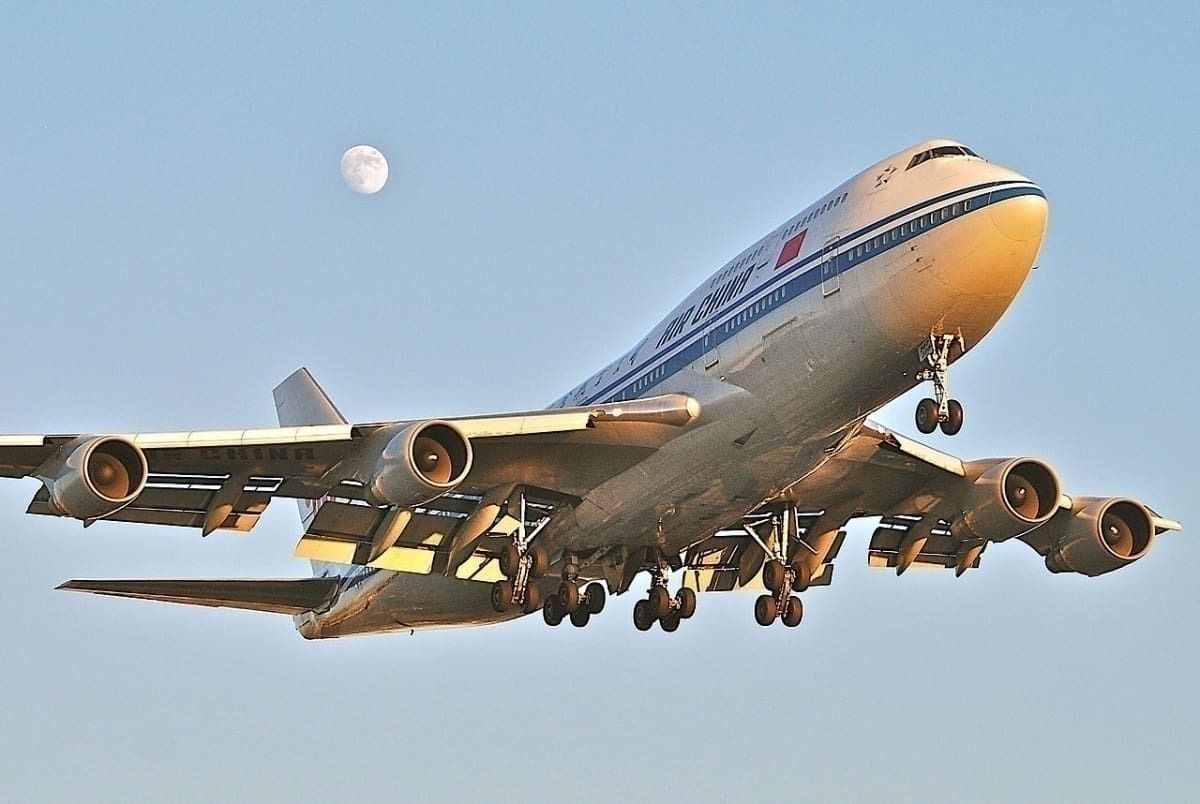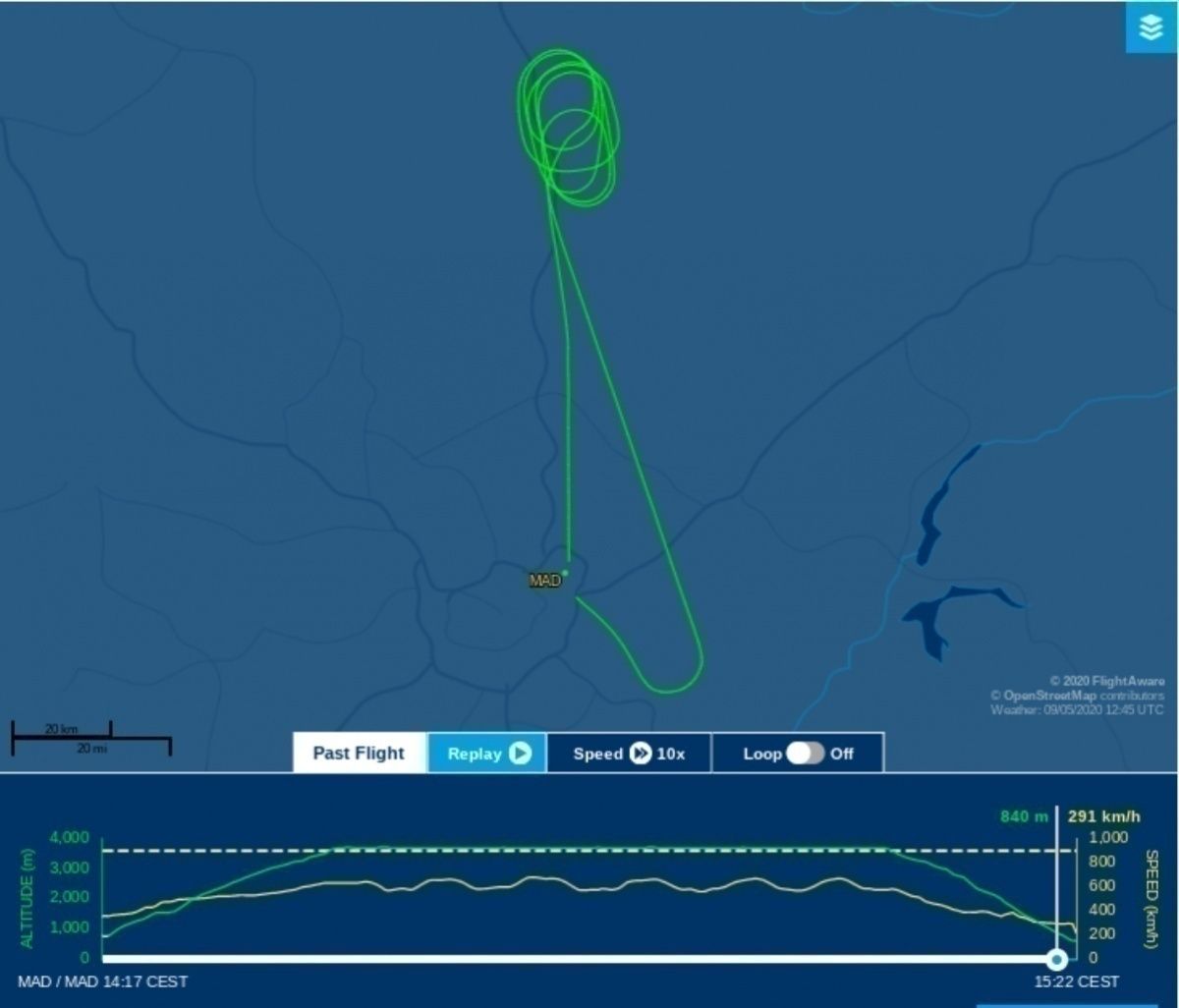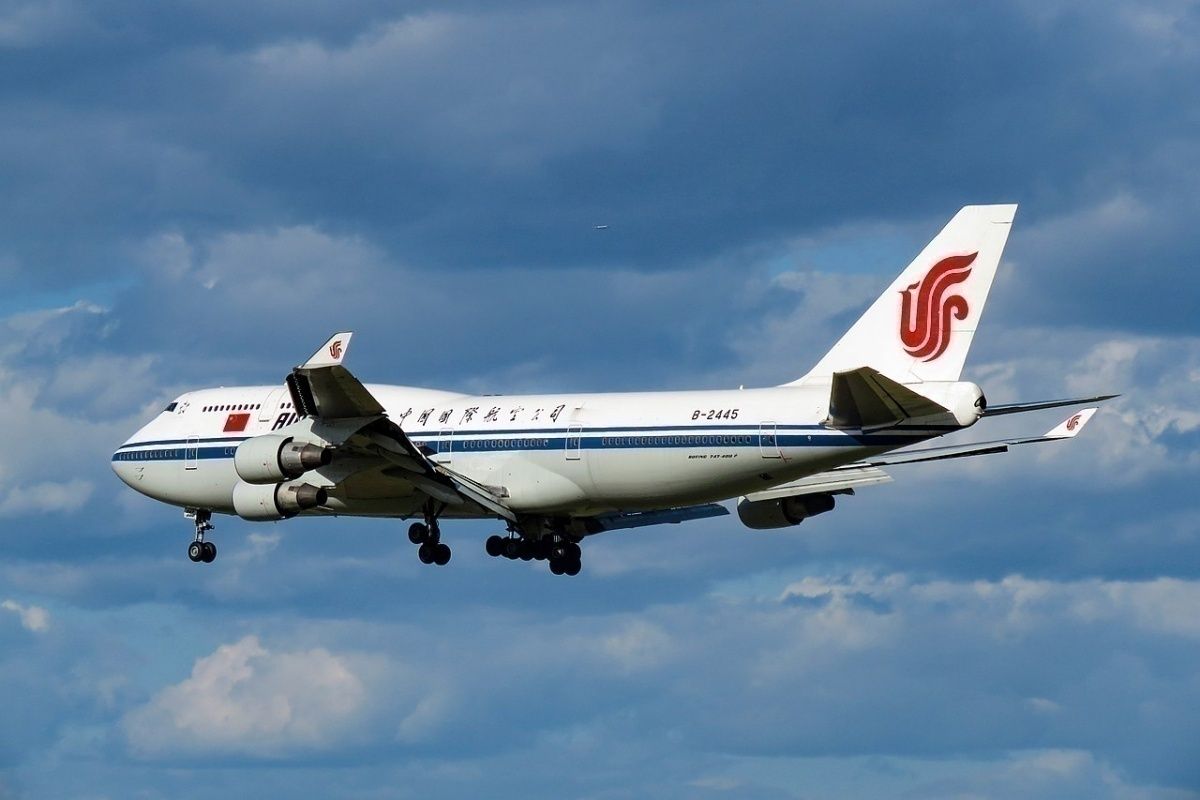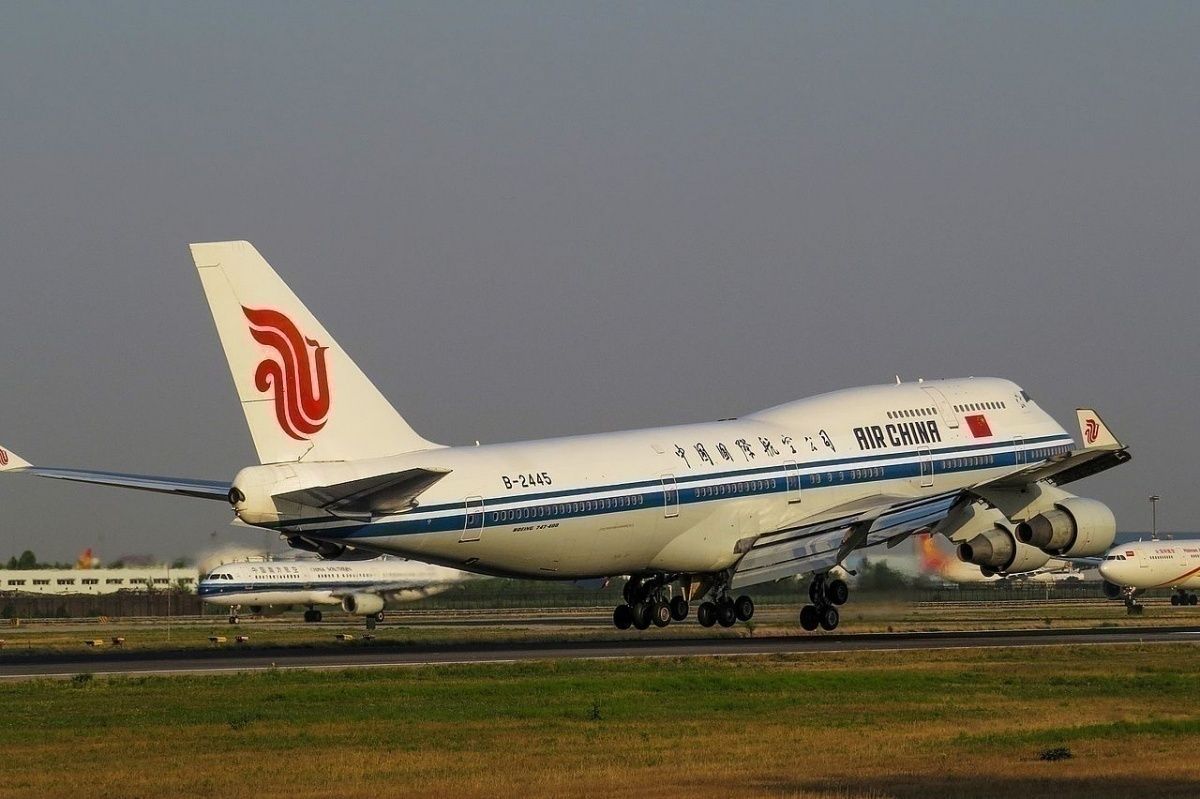An Air China flight climbing out of Madrid on Saturday, 9 May, was forced to turn around and return to the airport after an engine ingested a bird. The aircraft landed safely about ninety minutes after departure. No-one aboard the flight was injured. Most passengers were unaware of the incident until informed by the crew that the plane was returning to Madrid.
Aircraft ingested a bird at 4,000 meters
A report in The Aviation Herald details the incident. The Air China 747-400 (registered B-2445) departed from Madrid's Barajas International Airport at 14:11 local time on Saturday. The flight took off to the north and struck the bird at around 4,000 meters. The climb was stopped, and the aircraft orbited before returning safely to Madrid, landing at 15:51.
The aircraft was operating flight CA-908 from Madrid to Tianjin in China. The once a week service now operates on a Saturday and uses one of Air China's three remaining 747-400s. The flight usually takes about 11 hours.
What was an Air China aircraft doing in Madrid?
The mere fact that there was an Air China aircraft in Europe may surprise some people. Despite cascading financial losses, most Chinese carriers have managed to keep some international services going. Air China's principal parent company is the Air China Group, which is a Chinese state-owned company. The deep pockets of Air China's owners can well afford to keep the airline in the air.
Throughout May, Air China continued to operate flights to 22 international destinations. The majority of these flights are only running once a week, some twice a week. But the airline is maintaining connections to a raft of European cities, including Paris, Copenhagen, Minsk, Stockholm, Warsaw, Vienna, Moscow, Athens, Frankfurt, and London.
Indeed, while most airlines around the world are suspending and winding down services, China has been countering this trend by gradually winding up services. That nation's aviation sector was amongst the first to slam the brakes on airline travel earlier this year. Overall, the Chinese aviation industry is estimated to have taken a $5.6 billion hit in the first quarter of 2020.
But as the pandemic has been brought under control in China, China's aviation sector is one of the first in the world to relatively re-emerge. Chinese carriers have been ramping up both domestic and international flying over April and May.
Maintaining the flights is not just about money (or the lack of it)
Still, you might think the demand for flights on Chinese carriers would be low, despite some rock bottom fares should a week in Tianjin be both possible for you and on your immediate agenda. But there remains a market for essential travel and with over one million Chinese living in Europe (nearly three million if you include Russia), there's undoubtedly plenty of people looking to get home to China.
And you have to factor in political considerations. Even if the Air China planes are flying to Europe mostly empty, the fact that the flights have been maintained is loaded with symbolism.
Revenue (or the lack thereof) probably isn't a consideration either.
That may go some way to explaining why an Air China 747-400 was in Madrid on Saturday. But what no-one can control, not even China, is a random bird that flies into an engine. There are reports of damage to the engine's fans. While the plane remains on the ground in Madrid, it did appear to fly a short 30-minute test flight this afternoon.
Simple Flying has approached Air China for further information. They have not responded before publication.




